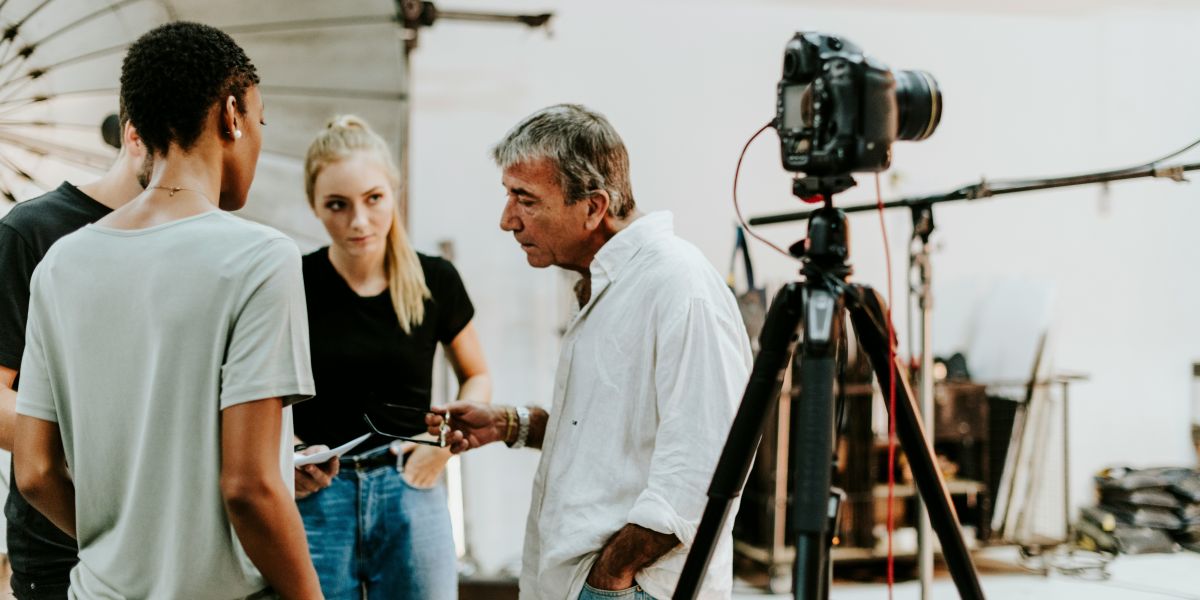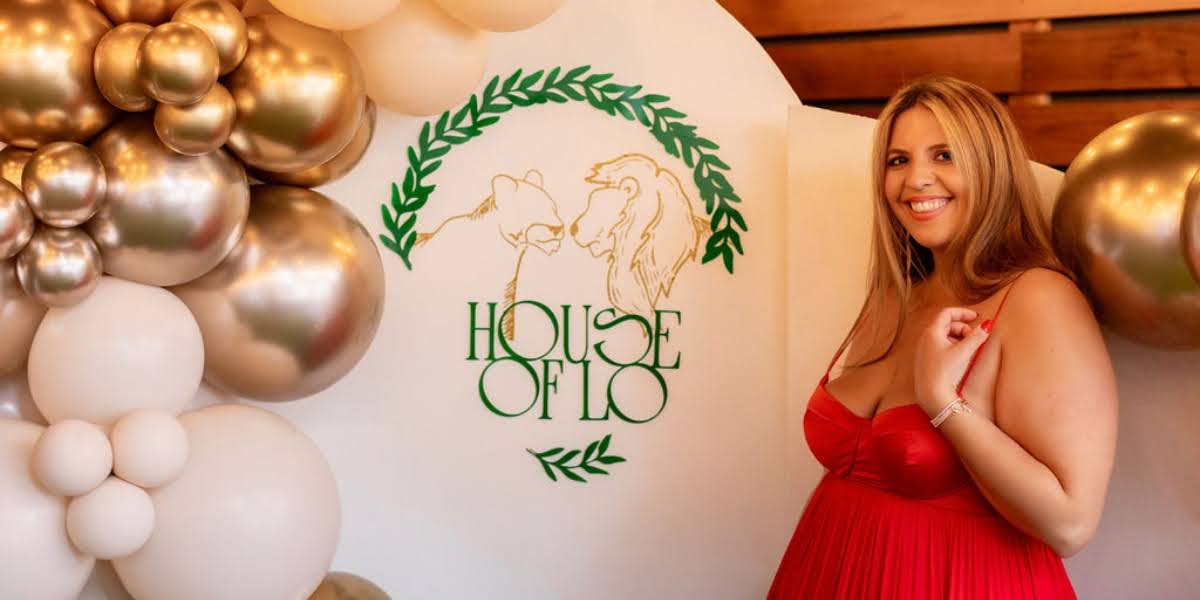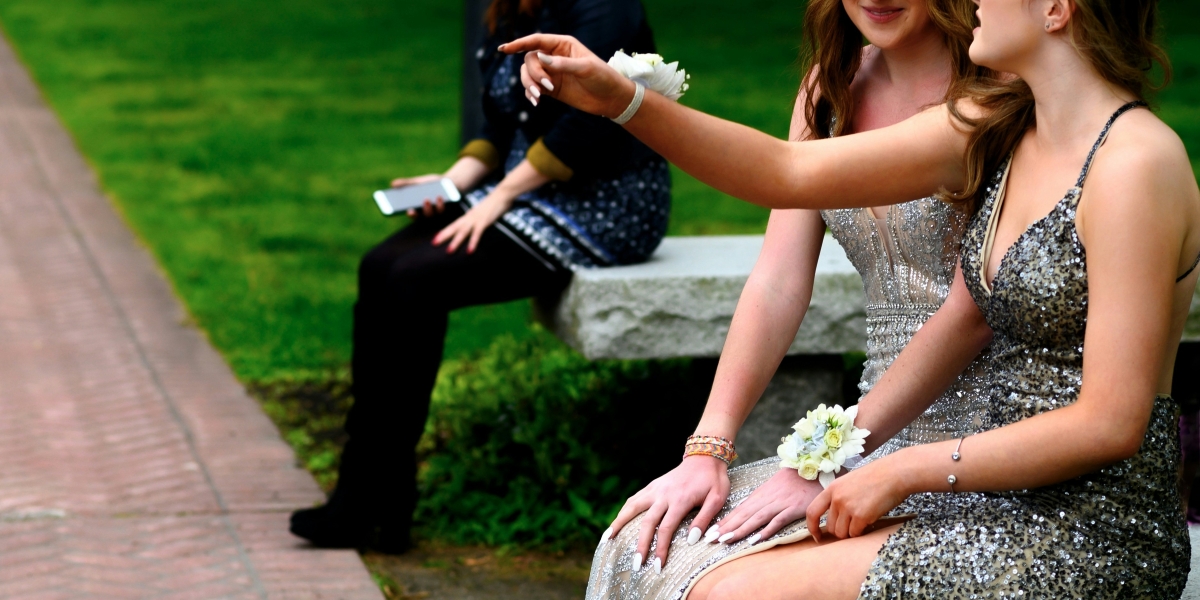About the founder: Leslie Kenny is an Oxford, England-based entrepreneur and Berkeley and Harvard graduate originally from Orange County. After being diagnosed with infertility and several autoimmune conditions, including one that was “incurable” in her 30s, she took her health into her own hands and not only healed herself but trained as a health coach at the Institute of Integrative Nutrition and at Dave Asprey’s Bulletproof Training Institute. After seeing clients globally and helping regenerative medicine start-ups find funding, she founded the longevity supplement brand Oxford Healthspan. Together with Sir Christopher Ball and Oxford University physiologist and systems biologist Professor Denis Noble, she co-founded the non-profit Oxford Longevity Project to educate the public on the latest healthspan-promoting research.
Hi Leslie, can you tell us a little about your background and when you became interested in the science of longevity?
I think that many of us who find our passion in healthcare get here after our own personal healthcare challenges. In my own case, this began at age 11, when I lived as the main caregiver to my alcoholic and manic-depressive father. You can imagine a child trying to make sense of that on their own. By age 39, he was dead, but the mystery of why this happened from a systems biology point of view has stayed with me.
At 19, my beloved paternal grandmother was diagnosed with an inoperable brain tumor, so I took a year out from Cal to care for her 24/7 with my uncle. We didn’t want her in a care home but in the familiar surroundings of her home, where she had lived happily for the previous 40 years, surrounded by family and friends. She was terribly brave and went into chemo with a fighting ‘can do’ spirit, but it was never really a fair fight, and after a brief remission, the cancer came back with a vengeance. Witnessing the decline of someone you deeply love, especially when they are being fed strawberry Ensure through a tube, raises questions about why this happens, whether it’s really the best we can offer, and why medical doctors don’t have all the answers.
By age 39, the same age that my father had died, I found myself confronting my own health crises – infertility and a string of autoimmune diseases. My body was prematurely aging, and my doctor gave me the news that I had a good five years left. That shock prompted me to do whatever was in my own power to support my body, and miraculously, within six months, I was in remission. Once you realize you can cure the ‘incurable,’ you realize that each of us has the power to impact our longevity.
Today, at 58, I feel more vibrant, vital, and healthy than I did in my 30s. This also took my career on an entirely different trajectory – see next point!
How and when did the idea come to you for your supplement brand, Oxford Healthspan?
After I retrained as a health coach, I came into contact with regenerative medicine scientists here at the University of Oxford and began helping them find funding for their patented discoveries. A colleague told me about some Oxford research into an intriguing compound produced by all plants and animals that had a remarkable effect on aging and dysfunctional immune systems. Unfortunately, because this research had no patent attached to it, no one was interested in helping commercialize the idea because you can’t put a patent on food, but I knew as a businessperson that patents don’t protect some of the most successful companies, but by brands – think Coke and Pepsi.
Since plant-derived spermidine had so much potential for its ability to induce cellular renewal (autophagy) and seemingly target more root causes of aging, known as the “Hallmarks of Aging,” than any other compound, I wanted to bring it to market in its highly concentrated form so everyone could benefit. That’s when I launched Oxford Healthspan, and Primeadine, a plant-derived spermidine, was born!
Is there someone you look up to or see as an inspiration for your company?
There are actually two. One is my grandmother, who always told me I could do anything if I put my mind to it – and even gave me a round disc with the words ‘TUIT’ printed on it so I would always have a round ‘TUIT’ with me – and the other is Oxford University Professor of Cardiovascular Physiology, Denis Noble. Oxford Healthspan has a very scientific orientation, but I am not a trained scientist or a doctor. Oxford is well known for being skeptical of those who don’t have a particular academic background, so I have been very fortunate to have Denis mentor me. This has effectively allowed me to do the job I am doing now. If he had not seen some promise in my ability to grasp systems biology as a patient, I don’t think I’d be where I am today.
How did you bring your brand to market in the US?
We launched in October 2020 when both the US and UK were in Covid lockdowns, but luckily, I had tested samples of our Japanese raw material and visited our manufacturer in the US before the lockdown, so I was able to press play on production from the UK.
Since pretty much everyone was shopping online, we launched online and at a virtual conference. We were the first food-derived spermidine supplement to market in the US.
After that, we grew by word of mouth. One of our early supporters was natural beauty guru Nadine Artemis, owner of the Living Libations boutique in Venice, California. Between Nadine and the biohacking podcast circuit, we were soon a firm favorite in the daily anti-aging stacks of Hollywood actors, models and Olympic athletes.
Biohacking is becoming more popular amongst the LA elite; what is it, and how can we hack, too?
Biohacking essentially means optimizing your health or biology by changing your environmental inputs. As a woman, I prefer the idea of ‘harmonizing’ because it resonates more with my philosophy of bringing the body back into a state of balance or homeostasis to find optimum health. Whether you call it ‘biohacking’ or ‘bioharmonizing,’ the tools are the same and include everything from fasting, biofeedback, meditation, supplements, peptides, electrostimulation and, of course, optimizing diet, sleep, movement and reducing stress, a major inflammatory and aging mechanism.
Your stereotypical biohacker will usually be seen rocking a pair of blue-light blocking glasses, taking a dip in an ice bath, and sipping coffee with MCT oil, but, in truth, any of us facing serious health challenges and trying to reverse them is a biohacker.
My own journey began in 2004 when I was diagnosed with infertility, rheumatoid arthritis and lupus and told there was no cure for the latter. After extensive research, I realized that the root cause of all of these was inflammation, and so I went on Dr Barry Sears’ anti-inflammatory zone diet, removing dairy, gluten, and lectins like tomatoes that can cause flare-ups. I also looked at ways to reset my immune system by doing two rounds of a novel therapy called Intravenous Immunoglobulin (IVIg). Within six months, I was in remission and, rather shockingly but happily, told that I no longer had either RA or the “incurable” lupus. The penny dropped that we patients have a lot more power within our grasp than we realize.
Today, 19 years in remission, I still maintain an anti-inflammatory diet, avoiding dairy, sugar, alcohol and smoking. A few of my other biohacking practices include optimizing my morning coffee – it contains a blend of nourishing ingredients like raw cacao (for magnesium), grass-fed collagen (for my skin and joints), and a powdered MCT creamer (to increase short-chain fatty acids in my gut and support my brain health).
I walk my talk and eat natto, a Japanese fermented soybean dish that is the highest food source of spermidine, which we naturally produce when we’re young but whose production declines as we age. It’s essential for triggering our body’s cellular renewal and “clean up” process and has been found to target more root causes of aging than any other compound. These include things like gut dysbiosis, inflammation, telomere shortening, and stem cell and mitochondrial dysfunction. It’s so important that I take our Primeadine plant-derived spermidine supplement twice every day. I’m really proud of this because most people can’t tolerate the smell or mouth feel of natto, so finding a clean, food-derived spermidine that isn’t ‘cut’ or ‘enhanced’ with potentially toxic (to fertility and the liver) synthetic spermidine has been quite a feat.
Another Japanese biohacking practice I use is blood flow restriction using Ka’atsu bands. These are like blood pressure cuffs but trick the brain into releasing certain hormones that build muscle and stem cells. This is my personal hack to maintain muscle as I approach 60 without being a slave to the gym. You only need to wear them for six minutes a day, and they are used by Olympic athletes all around the world, including the US ski and swim teams.
You can find out more on my social media channel @lesliesnewprime.
I will say that some people go overboard when it comes to biohacking. I don’t think taking 100 supplements a day ‘to cover all your bases’ is good for you. I think it’s better to test and tune in to exactly what your body needs instead of loading it up with everything without knowing whether your body needs it or not. Balancing the body should be the goal, and that means something different for everyone. The diet that works for your friend may be counterproductive for you. We’re each bio-individual, which means tuning into what uniquely works for each of us and gives us that sense of vitality and good health. That’s why I focus on ‘healthspan’ and ‘longevity’ together, rather than longevity on its own, because what’s the point of extending your life if you’re not living a healthy and happy one? For this, we can look to the Blue Zone centenarians, like those in the longevity islands of Okinawa, for advice. They live simple, long, and vital lives surrounded by loved ones, doing what gives them a sense of purpose, having a sleep routine, getting regular exercise and eating fresh, nutrient-rich produce.

And finally, what are you enjoying reading or watching right now (it doesn’t have to be business-related)?
Brain Energy by Harvard Med School psychiatrist Dr. Christopher Palmer looks at how illnesses ranging from addiction and anorexia to bipolar are basically metabolic diseases that require different fuel, such as ketones, and Fasting Like a Girl by Dr Mindy Pelz, which breaks down exactly how we women need to fast at different times of the month so we can work in sync with our cycles and not against them. Both are fantastic books that I highly recommend.
Sponsored Post






